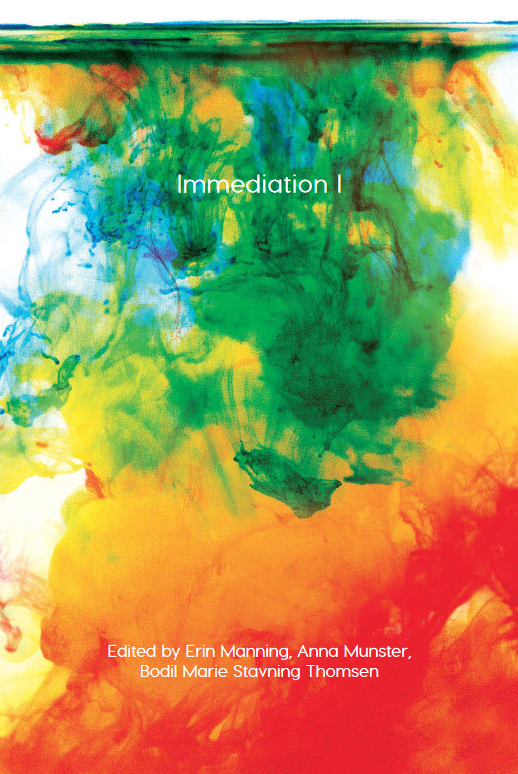Immediation I
Editorial: Open Humanities Press
Licencia: Creative Commons (by-nc-sa)
Autor(es): Manning, Erin; [et al.]
A shudder instantly runs down the spine, calling each vertebrae to attention! Would ‘immediation' not return us right away to direct perception of the world; what is given in experience; the simplicity of the present and all the attendant (historical) problems? It is necessary to revisit the notion of "mediation," enshrined in the very term "the media", which is everywhere today. All "media-tion" stages and distributes real, embodied - that is, immediate, events. The concept of immediation entails that cultural, technical, aesthetic objects, subjects, and events can no longer be abstracted from the ways in which they contribute to and are changed by broader ecologies. This book seeks to engage the entwined questions of relation, event and ecology from outside already claimed territories, nomenclature and calls to action. Immediation I and II ask otherwise: what are the thinking-feeling imperceptibilities that colour, contour and condition relational experience today? All 25 contributors explore qualities of relationality, spacetimes of the event and transversal fields of thinking-making through expanded research. Together and apart, they generate novel concepts for immediating. Contributors to Immediation I: Andrew Murphie, Ilona Hongisto and Bodil Marie Stavning Thomsen, Toni Pape, Thomas Lamarre, Stamatia Portanova, Andrew Goodman, Erik Bordeleau, Pia Ednie-Brown, Nathaniel Stern, Anna Munster, Alanna Thain, Julia Bee, Erin Manning, Brian Massumi, Christoph Brunner. Contributors to Immediation II: Lone Bertelsen, Nicole de Brabandere, Erin Manning, Mattie Sempert, Sher Doruff , Justy Phillips, Gerko Egert, Michael Hornblow, Jonas Fritsch, Jondi Keane, Brian Massumi.
[London: 2019]
Compartir:
Una vez que el usuario haya visto al menos un documento, este fragmento será visible.


